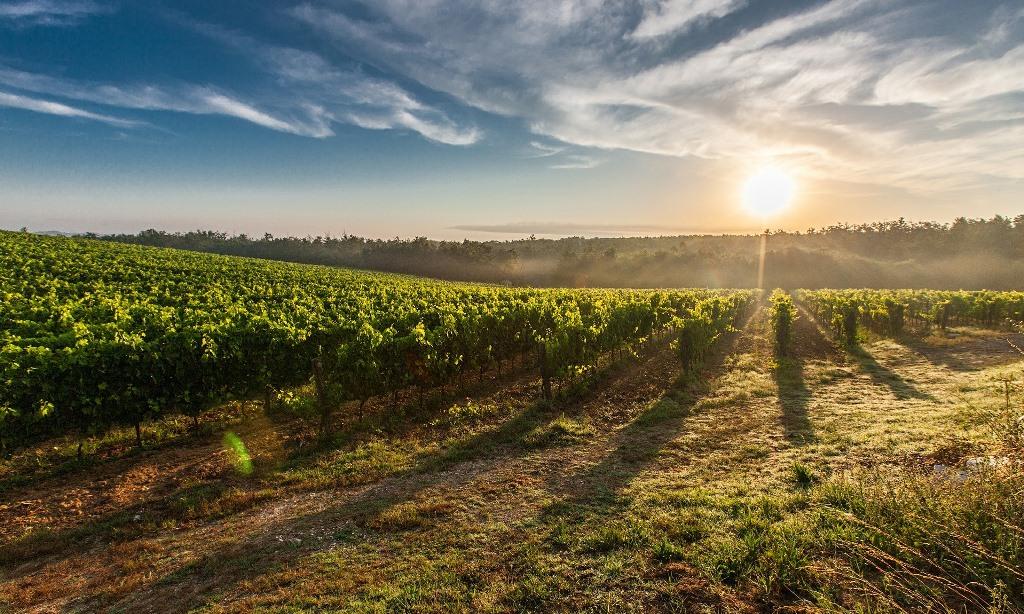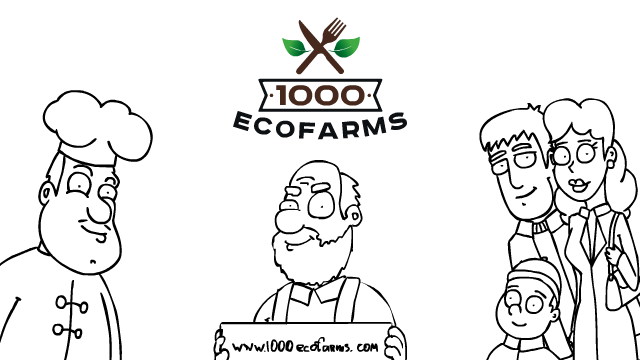We’d like to honor this day by discussing the relationship between our food and the environment, as well as 5 simple ways you can help make that relationship more sustainable this Earth Day.
Food and the Environment
The sustainability of our food systems is imperative to the health of our ecosystems and ultimately our planet. Unsustainable agricultural practices contribute to environmental problems in many different ways.
Large-scale monocultures often pollute our air and water, degrade our soil, harm our pollinators, and hinder natural ecosystems. Industrial meat production depletes are water sources, pollutes our air and water, and serves as one of the largest contributors to global warming. Eating nonlocal food tends to support the practices, and adds food miles to everything you eat, ultimately increasing your carbon footprint.
And that’s just scratching the surface of all the ways unsustainable agriculture can harm our planet. The bottom line is this: if we care about the earth, making sustainable choices about what we eat is not just beneficial… it’s necessary.
Food and the Environment
The sustainability of our food systems is imperative to the health of our ecosystems and ultimately our planet. Unsustainable agricultural practices contribute to environmental problems in many different ways.
Large-scale monocultures often pollute our air and water, degrade our soil, harm our pollinators, and hinder natural ecosystems. Industrial meat production depletes are water sources, pollutes our air and water, and serves as one of the largest contributors to global warming. Eating nonlocal food tends to support the practices, and adds food miles to everything you eat, ultimately increasing your carbon footprint.
And that’s just scratching the surface of all the ways unsustainable agriculture can harm our planet. The bottom line is this: if we care about the earth, making sustainable choices about what we eat is not just beneficial… it’s necessary.
5 Ways To Do Your Part This Earth Day
1. Buy from a local farmer.
Buying from a local farmer means supporting small scale, diversified agriculture, which can help local ecosystems thrive, increase biodiversity and improve soil health. Plus, it cuts down on pollution and energy consumption related to food miles. You can find local farmers at farmers markets, through buying clubs and CSAs, or on our website 1000ecofarms.com.
2. Eat less meat — or more sustainable meat.
Industrial meat production is one of the largest contributors to greenhouse gas pollution — a primary contributor to global warming. By eating less meat, or purchasing meat from a small, local, and sustainable producer, you can help lessen the negative impact of industrial meat.
3. Reduce your food waste.
Approximately 30-40% of food produced in the United States will never be consumed, making it food waste. Meaning that all the resources used to produce that food are also wasted. Food waste is also a large contributor to global warming, as it often ends up in landfills, emitting methane gas. Avoid food waste by only buying what you’ll eat, educating yourself on “best by” labels, and donating any extra food before it goes bad.
4. Volunteer with sustainable food organizations.
Whether with a nonprofit, on a farm, or through a WWOOFing experience, volunteering and lending a hand to the sustainable food movement can be a fun and unique way to make an impact. Find a local nonprofit in your area, volunteer at an urban farm, or sign up to help at the farmers’ market.
5. Visit a local farm — and bring a friend!
Ultimately, in order to improve the sustainability of our food systems, educating consumers is vital. There’s no better way to get close to your food than to visit the place it is coming from. By gaining a better understanding of what sustainable farmers are doing and why it matters, you can help push the sustainable food movement too — especially if you encourage your friends to tag along!
Whether you’re a lifelong environmentalist or just getting interested in taking better care of the earth, it’s never too late to start. Earth Day is the perfect opportunity to reach out and give our planet a big, warm, theoretical embrace… and any of the actions we recommended, are exactly that.
1. Buy from a local farmer.
Buying from a local farmer means supporting small scale, diversified agriculture, which can help local ecosystems thrive, increase biodiversity and improve soil health. Plus, it cuts down on pollution and energy consumption related to food miles. You can find local farmers at farmers markets, through buying clubs and CSAs, or on our website 1000ecofarms.com.
2. Eat less meat — or more sustainable meat.
Industrial meat production is one of the largest contributors to greenhouse gas pollution — a primary contributor to global warming. By eating less meat, or purchasing meat from a small, local, and sustainable producer, you can help lessen the negative impact of industrial meat.
3. Reduce your food waste.
Approximately 30-40% of food produced in the United States will never be consumed, making it food waste. Meaning that all the resources used to produce that food are also wasted. Food waste is also a large contributor to global warming, as it often ends up in landfills, emitting methane gas. Avoid food waste by only buying what you’ll eat, educating yourself on “best by” labels, and donating any extra food before it goes bad.
4. Volunteer with sustainable food organizations.
Whether with a nonprofit, on a farm, or through a WWOOFing experience, volunteering and lending a hand to the sustainable food movement can be a fun and unique way to make an impact. Find a local nonprofit in your area, volunteer at an urban farm, or sign up to help at the farmers’ market.
5. Visit a local farm — and bring a friend!
Ultimately, in order to improve the sustainability of our food systems, educating consumers is vital. There’s no better way to get close to your food than to visit the place it is coming from. By gaining a better understanding of what sustainable farmers are doing and why it matters, you can help push the sustainable food movement too — especially if you encourage your friends to tag along!
Whether you’re a lifelong environmentalist or just getting interested in taking better care of the earth, it’s never too late to start. Earth Day is the perfect opportunity to reach out and give our planet a big, warm, theoretical embrace… and any of the actions we recommended, are exactly that.







